|
As we continue through this summer, it can feel like the heat and humidity exhaust us to the point where everyday feels the same. It seems to be a never ending cycle of heat, mosquitoes and thunderstorms and I find myself focused on the negative as I just float along. However, when I have a goal in mind, something that I am striving towards, the hot days suddenly become more bearable. I need that jolt of fresh air to keep me going. Just like our physical lives, our spiritual lives in the summer can go through some exhaustion as well. For those who have not explored our Saint Website yet, we hope it can be a spark for you this August. For those of you who already look at our saints of the day, we have added five new saints this month that can hopefully be insightful and helpful for your prayer and reflection time throughout the month. Bl. Frédéric Janssoone Tomorrow we will celebrate the life of 19th century Franciscan Bl. Frédéric Janssoone. Although he lived and worked at the end of the 1800s, his life can still be a model for so many of us today. He was a missionary in Canada and was not only known for his missionary work, but also for his handling of the administrative tasks of the growing missionary efforts of the Franciscans there. Today, it is easy to compartmentalize ourselves as being good at one thing at a time, for example, either excelling at missionary work or administrative work. The life of Bl. Frédéric, however, shows us that with the guidance of the Holy Spirit we can combine both missionary and administrative work into a life of holiness. He is a wonderful example of how we can allow the Lord to work in our lives in many different ways. Bl. Frédéric Janssoone, Pray for Us St. Mary MacKillop On August 8th, we will celebrate the feast of St. Mary MacKillop. I found it interesting that St. Mary MacKillop lived at almost the exact same time as Bl. Frédéric Janssoone. Here are two people, from different walks of lives, in different parts of the world who both found their way to Sainthood. It gives us reason to believe that there are saints all throughout the world in our time. I also think that St. Mary MacKillop was inspirational because she was the first person to be canonized from Australia. It is always hard to be the first person for anything. Most people do not like to be put out of their comfort zone, much less to be the first person canonized as a saint in a specific country. Whether it be our career, our socioeconomic situation, or any other hardship we may face in our life, we can always look to St. Mary MacKillop as a role model for living a saintly life under challenging circumstances. St. Mary MacKillop, Pray for Us St. Alberto Hurtado In the middle of the month, we will celebrate St. Alberto Hurtado. He was a 19th century Chilean Jesuit. After joining the Jesuits, he noticed two main problems that would become the basis for his ministry. First, many Catholics in the country had very little interaction with a priest. Second, many of the poor, including children, did not have housing. St. Alberto Hurtado devoted his life to helping the people of Chile overcome these two problems and I encourage you to read more about his work! I am particularly inspired by the ability of St. Alberto Hurtado to notice the societal issues at the time and fix them with haste.. He did not wait for someone else to do it; he saw the need and he addressed it right away. In our lives, may we strive to be as receptive and adaptive as St. Alberto Hurtado and help those around us without hesitation. St. Alberto Hurtado, Pray for Us St. Joseph Calasanz The feast of St. Joseph Calasanz will be celebrated on August 25th. He lived and worked at the end of the 16th century and beginning of the 17th century in Italy. St. Joseph noticed that children from poor families were not able to receive an adequate education which would put them at a disadvantage later in life. This lack of education perpetuated the cycle of poverty among poor families and greatly reduced the educational success of their children. St. Joseph founded some of the first free schools in Rome which greatly helped these marginalized children in their attempt to escape this cycle. Let us learn, from the example of St. Joseph Calasanz, of the power that education has to lift people up and benefit everyone in society. St. Joseph Calasanz, Pray for Us St. Joseph of Arimathea The story of St. Joseph of Arimathea is one that most of us are familiar with from the Gospels. We will celebrate his feast on August 31st to close out the month. St. Joseph of Arimathea was a follower of Jesus who helped take Him down from the Cross and give Him a proper burial after his crucifixion. After he saw eleven of the twelve Apostles abandon Jesus during his Passion and the brutal death Jesus suffered, St. Joseph remained resolute in his faith and helped to care for Jesus during his death. Let us pray for the intercession of St. Joseph of Arimathea and ask that even in the most trying of times, we may, like him, stay committed to Christ and to the care of others. St. Joseph of Arimathea, Pray for Us To learn more about the saints, visit our Catholic Feast Days Website by clicking here.
0 Comments
Yesterday, July 31, was the feast of St. Ignatius of Loyola, the Spanish spiritual master who gave us the Spiritual Exercises and was the founder of the Society of Jesus, also known as the Jesuits. As a young man, Ignatius served as a page for the treasurer of the kingdom of Castile and would later become an officer in the Spanish army. In 1521, Ignatius was struck in battle by a cannon ball which landed him in the hospital for a year. While in the hospital, Ignatius began to read about the life of Christ and the lives of the Saints, and he experienced a profound conversion. After years of prayer and further education, Ignatius took vows of poverty, chastity, and obedience and, along with other men including Peter Faber and Francis Xavier, formed the Society of Jesus in 1534. Ignatius was ordained in 1538 and the Society of Jesus was officially recognized by Pope Paul III in 1540. Additionally, Ignatius led the Society as its Father General until his death in 1556. Among the many great things that St. Ignatius gave the Church including the Society itself, which has produced many great Saints, and the Spiritual Exercises, Ignatius also gave us a prayer called the Suscipe. As short and simple of a prayer as the Suscipe is, it is equally as powerful. Essential to Ignatius’ spirituality is the fact that all human beings are creatures created by God and are in need of his great mercy and love and that everything we experience in our lives is a gift from God. The Suscipe is, in my estimation, the perfect product of this essential factor of Ignatius’ spirituality. Ignatius’ prayer goes like this: Take, Lord, and receive all my liberty, my memory, my understanding, and my entire will, All I have and call my own. You have given all to me. To you, Lord, I return it. Everything is yours; do with it what you will. Give me only your love and your grace, that is enough for me. As creatures, everything that we are and everything that we have is from God, our creator. Our liberty, memory, understanding, will, possessions, gifts, and talents — every good thing in our lives is a gift from God. The problem is that we, as humans, tend to think that we have done all the good things in our lives. While we certainly have to cooperate with God’s grace, all things are still reliant on his grace. Everything in this world will eventually pass away. Our good looks, quick wit, great intellect, ability to play an instrument, cook great food, or hit a golf ball 350 yards will pass away at some point in our lives. What do we do when we can no longer rely on our physical or mental ability? We can certainly shrivel up into a proverbial ball and pout that our life is over. But life in Christ leads us another direction, the direction of the Suscipe. This direction points us to grace and the necessity of grace in our lives. Even when all the other good things in our lives are gone, God’s grace will remain. God’s grace will sustain us when nothing else can and will be there when everything else fades away. Let’s have the courage to rely solely on God’s grace which is all that we need. St. Ignatius of Loyola, pray for us!
Since 2017, apart from 2019, I’ve been involved with a youth summer program called Light the World! Summer Institute and have served as the program’s director since 2020. At Light the World!, high schoolers from around the world join us at The Catholic University of America in Washington D.C. to explore how the Catholic faith can be joyfully and vibrantly lived through the vocation of the lay person and the universal call to holiness. In June, LtW! welcomed fifty one high schoolers over two weeks who were led by a team of fourteen undergraduate students. I work in young adult ministry daily, serving as a formator, mentor, and pastoral person for the undergraduate students I serve at CatholicU. However, for one month out of the year I get to put on my youth ministry hat and get in the trenches (so to say). It is, in fact, this annual experience with the young church that, I believe, helps me to become a better young adult minister as I get a sneak peak of what is to come with future generations of college students. Because of this intersection of youth and young adult ministry, I find myself walking away with new insights about the young church each year and I’d like to share a few of those here, aided by Pope Francis from Christus Vivit. “There is also a special need to accompany young men and women showing leadership potential, so that they can receive training and the necessary qualifications.” Christus Vivit, 245. Each year we hire fourteen undergraduate students at CatholicU to serve as counselors, ministering to the high schoolers and witnessing to the joy of the Gospel. This year, my staff was uniquely impressive. Impressive not because they are expert pastoral people, have all of the theological knowledge one could have, and are perfect communicators, but impressive because of how open they are to one another, to our program, and most importantly to God. These young men and women came from a variety of different geographical regions, experiences with ministry and the Church, and areas of study, yet all came with an openness to the will of God that was refreshing and beautiful. Ideas were not presented as absolutes but as hopeful suggestions for improvement. Failures and shortcomings were, over time, seen as opportunities to accept God’s grace amid our weakness. Every opportunity that was given to these young men and women were seen as just that, opportunities to give another yes to the Lord. “The very first truth I would tell each of you is this:‘God loves you.’ It makes no difference whether you have already heard it or not… God loves you. Never doubt this, whatever may happen to you in life. At every moment, you are infinitely loved.” Christus Vivit, 112. Our evening sessions at Light the World! take our participants on a journey of God’s presence and role in our lives. By reflecting on themes like reconciliation with God and listening to God’s call for us in our lives, participants and staff alike are brought into a closer encounter with the Lord and confront the big questions in our lives. I am continually struck by the consistency with which the struggles in the lives of faith of young people come back to this simple truth that Pope Francis articulates in chapter 4 of Christus Vivit, God loves you. There is a deep hunger by young people to be seen and heard, to be acknowledged as loveable, and most simply to be loved. I witnessed high schoolers who had put up walls before they even arrived on our campus begin to soften when they realized that the people around them at Light the World! were there to love them, no strings attached. When my staff struggled, it wasn’t because they were doing a bad job, but because this truth of God’s love for them was squeezed out by temptation to compare and hyper-criticize themselves. At the heart of each person’s search for God this summer was the desire to know of God’s love for them. The Young Church is alive, but it is in great need. The need to know they are loved by the Body of Christ and by the Risen Christ, the need for opportunities to lead while being accompanied by mentors, and the need for ongoing encounters with Christ daily. Light the World! helped me to see these needs in a new light and to reaffirm my commitment to serving the young church through the Joy of the Gospel!
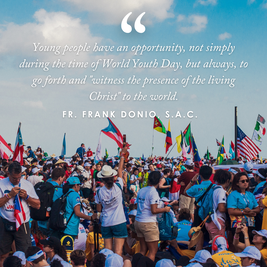 The theme for World Youth Day 2023 is “Mary arose and went with haste” (Lk 1:39). This celebration is not simply for those who go to Lisbon, Portugal, but also for all young people and those who work with them. It is an invitation, an opportunity, to enter into a spiritual and evangelizing experience. As the official website for World Youth Day 2023 remind us: “ “Leaving in haste represents the attitude depicted in Pope Francis’ indications for WYD Lisbon 2023: ‘may young people’s evangelization be active and missionary, for this is how they will recognize and witness the presence of the living Christ.’” “Leaving in haste” means that young people and all the baptized are called to go forth and witness Christ. Staying only where we are and with people with whom we are comfortable can result in our becoming complacent in our spiritual lives. We need to be missionary, including in our prayer. Is our prayer simply about ourselves or do we take the example of the Blessed Mother and be less concerned about ourselves and more concerned about others and doing the will of God? She left in haste to go to her cousin, Elizabeth, who in her advanced age was pregnant with St. John the Baptist. The main announcement of the Archangel Gabriel to the Blessed Virgin Mary was that she also was pregnant, but in a miraculous way by the Holy Spirit, carrying the Savior of the World, Jesus Christ. Instead of dwelling on her own situation, she went forth bearing Christ to Elizabeth whose child leap in the womb for joy! When we bear Christ to others – when we witness Christ – some may reject us, but others will receive us with joy. Their joy is not about us, it is about Christ. Young people have an opportunity, not simply during the time of World Youth Day, but always, to go forth and “witness the presence of the living Christ” to the world. May the Charity of Christ urge us on! In God, the Infinite Love, Fr. Frank
This past week, I had the opportunity to be an extra in The Chosen TV series. The show is currently filming the 4th of 7 seasons and is based on the lives of those who were “chosen” to follow Jesus. Some statistics state that “Season 1 was the largest crowd-funded project of all time raising $10 million from over 19,000 people. After 3 seasons, there have been 110 million unique viewers watching the episodes 520 million times across 175 countries. The whole series will soon be dubbed in 50 languages with plans to subtitle in over 600!”
One word that describes this show and the phenomenon that it’s generated is communion. During this Eucharistic Revival, it’s critical to draw our attention to the one-ness that Jesus desires for His Church: “I pray not only for them, but also for those who will believe in me through their word, so that they may all be one, as you, Father, are in me and I in you, that they also may be in us, that the world may believe that you sent me.” John 17:20-21 Eucharist means “thanksgiving” while Communion means “sharing in common.” Communion is the way we come together to share what we have received from God. A popular motto concerning the show is “it’s not our job to feed the 5,000, it’s only to provide the loaves and fish.” God gives each of us a gift and calls us to the table to share it with others so all can be fed. The world is being fed by diving deeper into the greatest story ever told – Jesus Christ, born in Bethlehem, raised by two devout Jewish parents, and gathering a unique group of friends one-by-one (if you’ve read the Bible, you know the spoilers that He is crucified, laid in a tomb, and then is seen speaking and eating with his friends once again, but that’s not until Seasons 6 and 7). Creating a show requires an astounding number of people to come together to make the final product. Though the focus is on the main cast on screen, it’s important to have background actors bringing the scene to life, set designers making it look realistic, makeup artists transforming characters, crew supporting the cast in between takes, assistant directors helping the director, writers, producers, editors, etc. We are all needed to tell a good story. For example, though a priest is able to say Mass on his own, the celebration of the Liturgy includes the congregation and the various ministers that assist him. God made us for community and that’s a big reason why we are obligated to participate in Mass weekly. Uniting together in prayer, song, and fellowship encourages and enlivens us as we continue to bring life to faith and faith to life as we carry our individual crosses each day. As a TV show, The Chosen has attracted viewers of all backgrounds, cultures, and beliefs. The focus on the historical Jesus unites people because we can all share the experience of being human. In between takes on the hot Utah set, I sat in the air-conditioned tent with hundreds of background volunteers from around the world. Some lived down the street and others flew across oceans to come together for this experience. I met people from all denominations and know that not all were even believers. They were just intrigued by the community that has formed around the show. During the last day of filming last week, the cast was required to strike in union with the Screen Actors Guild. Since the show itself is independent from Hollywood, production could continue with the background actors. It was strange to be on set without Jesus and the disciples, but it reminded me of the quote from St. Teresa of Avila: “Christ has no body now but ours, no feet but ours.” My fellow background actors embraced this opportunity to carry the load on set for the cast who were missing us since they stayed home. While “TV actor Jesus” (Jonathan Roumie) was not visible, I believed that Jesus Christ was indeed present. At Mass, we may not see the historical Jesus with our eyes or hear him with our ears. And yet, the priest stands in persona Christi so Christ’s Word can be heard and His Body and Blood received. I’m often asked if I’m Catholic or Christian. Catholicism means “universal.” No matter where I go in the world, I can find a Catholic Mass and feel like I’m at home. Though the prayers may be in a different language than my native tongue, the same Jesus is present in the Eucharist. My experience as a background actor reminded me of how everyone is needed, but not everyone has to stand out. In relationships, it’s about “we” not about “me.” The directors told us that background actors support the scene, not distract from it. If we draw attention to ourselves, the focus on the whole scene can be thrown off so we may be edited out. In our lives, we may feel like “just background,” but in reality, those ordinary roles can create an extraordinary impact. . The background actors who were a part of those large-scale scenes aren’t able to pick themselves out on screen, but joyfully share how it felt to be a part of the crowd. The joy we experience in life comes from standing among our brothers and sisters, not from standing out. Questions for reflection: We are each chosen to live in communion with one another. How are you participating in the Body of Christ?
**The reason I chose this picture is because each one of those people represents a different country! They are all social media representatives for The Chosen!**
While Christmas is still some time away, the circumstances surrounding the birth of our Lord give reason for us to pause and reflect throughout the year on the great mystery of the Incarnation—the entering of God the eternal Son into time and the human experience. At the Christmas vigil, the Gospel proclamation involves tracing the ancestral lineage of Jesus as “the son of David, the son of Abraham” and the prophetic culmination of divine promises. Those specifications, similar to the grand announcement of The Nativity of the Lord from the Roman Martyrology, draw upon Sacred Scripture to formally declare the birth of Christ and squarely place His entry into time. The USCCB notes: “It begins with creation and relates the birth of the Lord to the major events and personages of sacred and secular history. The particular events contained in the announcement help pastorally to situate the birth of Jesus in the context of salvation history.”
Reflecting on the genealogy of Jesus helps us to remember that he is part of a human family and was raised with particular role models and inherited traditions. It also reminds us that many people helped prepare the way for the coming of the Savior, playing greater or lesser roles for the glory of the Father’s plan. Two people who are part of Jesus’ genealogy, but passed over in Scripture are the parents of the Blessed Mother, Sts. Joachim and Ann. Factually, nothing about the parents of Mary arises from credible historic sources apart from their existence — not even their names of Joachim and Ann are verified! Although they are passed over in Scripture, Mary’s parents are critical as they represent generations who actively participated in the obligations of family and faith life while anticipating the coming of the Messiah. These saints maintained the spiritual and familial environment that nourished and inspired the Blessed Mother to always trust in God and to famously declare, “May it be done to me according to your word.” We find evidence of Mary’s strength of character and trust in the Lord in Scripture, especially Luke chapter 1 verses 28-55 and John chapter 2: Mary is steadfast in making decisions, active in prayer, obedient to the laws of her faith, calm through moments of crisis, and devoted to her relatives. It is not hard to see how such models of parenthood would likely have inspired Mary’s own upbringing of Jesus. We can wonder how much of Mary’s unyielding belief through Jesus’ ministry, Passion, and Resurrection — especially after seeing her son publically brutalized and murdered — was instilled in her by the fortitude and strength she saw modeled by her own parents during her childhood. What can we learn from the parents of the Blessed Mother? We may not all be grandparents, but we can still influence our families through our receptiveness to the perspectives, experiences, and lessons of those preceding us. Truly these are treasures of wisdom not to be taken lightly or ignored. Pope Francis has sought to convey this important observation. During his first World Youth Day as Pope, observing that Brazilians were celebrating Grandparents Day on the feast of Sts. Joachim and Ann, he reflected: "How precious is the family as the privileged place for transmitting the faith! … How important it is to have intergenerational exchanges and dialogue, especially within the context of the family … Children and the elderly build the future of peoples: children because they lead history forward, the elderly because they transmit the experience and wisdom of their lives." The family is often the first community of love, knowledge, and faith that we experience (CCC 2205). It is a great gift to preserve and strengthen that takes our time, talent, and commitment to keep strong. Yet, just as each of our family members are imperfect, so too is our own love despite our best intentions. At times we may lose patience amidst the demands of life. Or, more tragically, we may find ourselves amongst family members who do not know how to love, perhaps products of their own troubled upbringings. When we face difficulties within our families, or see hurt in other intergenerational families, let us remember that regardless of our human relations, we have been born into the spiritual family of the Church. How wonderful it is that despite our earthly circumstances each of us has been entrusted to call God our Father, Mary our Mother, Joachim and Ann our grandparents and Jesus our Brother and Savior. Sts. Joachim and Ann, pray for us! Questions for Reflection: Who are the people in my family who have taught me the beauty of the faith? Which members of my family need me to show them the love of Christ? **This post was originally published on 7/25/2018** Above the couch in my therapy office, individuals, couples, and families see a painting of Saints Zelie and Louis Martin on their wedding day. As a Catholic therapist, I want clients to be encouraged by Saints who can empathize with their life experiences. Though most Saints we hear about today tend to be either priests or sisters, couples are not excluded from the call to holiness. In fact, more people in the world are called to marriage. That is why religious life is “set apart” from the world – it can be seen as strange, different, unfamiliar. Since lay people make up most of the population, there must be many saints that we never hear of. A good explanation for this is that canonization can be a complicated, and sometimes, an expensive process . Lay people rarely have others in their life who are familiar with and/or can afford the canonization process. Religious communities are more familiar with the canonization process and the work that it entails. It’s important to emphasize: we are all called to be saints! Though the world prioritizes happiness, the Church prioritizes holiness. As Christ displays in the Beatitudes, blessedness means happiness. If you’re living a blessed life, you will be happy. This happiness is not fleeting or conditional, true happiness is joy that brings meaning and fullness to life. So, marriage doesn’t necessarily make you happy, marriage makes you holy and holiness makes you happy! Two of the most beautiful examples of holiness and happiness are Zelie and Louis. They are famously known as the parents of the beloved St. Therese of Lisieux and hey became the first married couple to be canonized together on October 18, 2015. What a testament to the sanctification of marriage! True love is contagious and infinite. If we truly seek the best for another, it makes sense that being seen, known, and loved results in seeking the best in the other in return. The exchange of this love becomes an infinite loop of grace. If both spouses look out for one another, they don’t have to worry about themselves. This produces a great sense of freedom and safety to be authentic and generous with all that one is and has. Neither Zelie nor Louis felt called to marriage before they met. They both felt a strong pull to religious life. Louis wanted to become a monk and Zelie wanted to become a religious sister. Louis was turned away because he had trouble learning Latin and Zelie was turned away for respiratory problems. The two of them met and immediately fell in love. They married 3 months later, but still felt convicted to live a life of abstinence since God was their deepest love. After a few years of marriage, a spiritual director encouraged them to consummate their marriage and this led to giving birth to nine children. Four children died in infancy, the remaining five entered religious life and became Saints themselves. During the canonization Mass Pope Francis said, “The holy spouses Louis Martin and Marie-Azélie Guérin (Zelie) practiced Christian service in the family, creating day by day an environment of faith and love which nurtured the vocations of their daughters, among whom was Saint Therese of the Child Jesus.” There is so much to share about this faith-filled couple, so I encourage you to read more about them on your own time. They are the patron saints of illness, mental illness, marriage, parenting, and widowers. I hope that something in their story will give you hope and encouragement in your own life. The same wedding vows have been used in the Church since Medieval times so these nineteenth century lovebirds said the same words we hear at Catholic weddings today: “I promise to be true to you in good times and in bad, in sickness and in health. I will love you and honor you all the days of my life." In the marriage prep classes I teach, I often point out to the couples that compatible means “to suffer with.” Author Jason Evert adds, “If you are not willing to suffer with someone until death do you part, then you are not compatible.” Engagement is usually just focused on planning a wedding party rather than discerning a life together. Feasting only has meaning when it’s accompanied with fasting. You can’t have the Resurrection without the Passion. Our Lord loves love. He IS Love! The Bible begins with a marriage in Genesis and ends with a marriage in Revelation. Right in the middle of the Bible is Song of Songs. The Sacrament of Marriage is a representation of the love between Christ and His Beloved Bride – the Church. The Catechism of the Church explains the grace that is in the sacrament of Matrimony: “By reason of their state in life and of their order, [Christian spouses] have their own special gifts in the People of God.” This grace proper to the sacrament of Matrimony is intended to perfect the couple’s love and to strengthen their indissoluble unity. By this grace they “help one another to attain holiness in their married life and in welcoming and educating their children.” CCC 1641 As we celebrate the feast of Sts. Zelie and Louis, let us remember how marriage sanctifies us while not defining us. In my book Single Truth: You are more than your relationship status, I write that “marriage is an assist and not the goal.” In the recent Gospel, Jesus challenged us to always put Him first and to love Him most (Matthew 10:37). If you’re single, are you idolizing marriage and expecting it to make you happier than you are right now? If you’re married, how are you helping your spouse get to heaven? St. Zelie and St. Louis, pray for us! Images: https://www.littleflower.org/carmelites/humble-servants-the-canonization-of-louis-and-zelie-martin https://denvercatholic.org/they-were-fathers-and-became-saints/ https://www.teachingcatholickids.com/your-favorite-mom-saints/?print=print https://www.trinitystores.com/artwork/sts-zelie-and-louis-martin
When you hear the word ‘hospitality’, what comes to mind? Like most people, I bet you think of hotels, or in some cases, you may think of that one aunt you have who always makes sure everyone’s glass is full and everyone has a seat. If you’re in ministry, ‘hospitality’ may now be synonymous with having coffee and light pastries at early morning meetings. But in a Benedictine sense, hospitality is very different. July 11th marks the Church’s feast of St. Benedict. In the early sixth century, St. Benedict wrote a Rule that he wanted his monks to follow. In 73 short chapters, St. Benedict tried to lay out an entire monastic way of life, so he certainly had a lot of ground to cover. He wrote about everything; from how an abbot should be chosen to how much monks were to eat and drink and where they were to sleep. He also devoted an entire chapter to how guests were to be received and treated. This whole chapter, which is quite brief, can be summed up in the first phrase the Founder writes, “Let all guests who arrive be treated as Christ…” (Ch. 53). Benedict goes into specifics on how guests are to be welcomed and fed, but it all goes back to Christ Himself saying “I came as a guest, and you received Me” (Mt. 25:35). St. Benedict understands, and wants his monks to understand, that Christ can be found in everyone. The first phrase of the last paragraph is a perfect summary of the Gospel message as well, “In the reception of the poor and of pilgrims, the greatest care and solicitude should be shown, because it is in them that Christ is received…” (Ch. 53). How do we treat the stranger on the street, the man selling us a magazine, the immigrant, or the receptionist? Remember also, this does not apply to just the stranger. How do we treat those that we see every day: the coworker, roommate, friend, or classmate? Are these people just a means to an end, are they here for our convenience or happiness, or are they Christ to us? Are we treating them as Christ incarnate or just as another person we have to deal with? Most likely we do not fall into either extreme, but every time we fall short of treating a person as Christ, we fall short of treating God as God. To be hospitable, we do not need to follow the exact instructions of St. Benedict. Our hospitality, like his, should be rooted in charity, in love. It can be quite simple: a smile, a since greeting, or the most common one at my alma mater, the holding of a door for a distant stranger. Hospitality is the easiest way to build up the Kingdom of God here and now. When we welcome the guest, greet the stranger, or feed the hungry, we are doing these things for both God and neighbor. By being hospitable, we are fulfilling the greatest commandment. Let us pray for the intercession of St. Benedict today, asking him to pray for us, that we may be hospitable, welcoming, and loving in every interaction we have. To learn more about St. Benedict, please visit our Catholic Feast Days site. **This post was originally published on July 10, 2014** AuthorBr. Titus Phelan, O.S.B. of St. Anselm Abbey.
In the Gospel of Mark, we hear that Jesus “went up the mountain and summoned those whom he wanted and they came to him. He appointed twelve [whom he also named apostles] that they might be with him and he might send them forth to preach and to have authority to drive out demons.” (Mark 3:13-15) Among these twelve was the apostle Thomas, an apostle whom we often characterize by his doubt alone. However, if doubt is all there was to Thomas, I am fairly confident Jesus wouldn’t have chosen him as one of his closest friends and coworkers for the Kingdom. While the Gospels don’t reveal too much about Thomas, let’s reflect on the lessons he can teach us about how to be Jesus’ disciples.
First, Jesus desires to use our whole selves. As God, before ever having met him, Jesus knew all that Thomas had done and all that he would do. He already knew Thomas would question whether the other apostles really saw the resurrected Lord. We might wonder why Jesus would still choose Thomas in spite of this. But if we look at Jesus’ other apostles and those He chose to spend time with we see sinners, doubters, and deniers. We see fully human people that, though imperfect, always sought after and returned to God. Jesus didn’t call men and women who had it all together and never messed up; he called imperfect people who through their very imperfections glorified Him and revealed what the Kingdom of God is like. What imperfections or mistakes have you made that the Lord has been able to use for His glory and your sanctification? Second, discipleship requires boldness. Being a disciple requires boldness as we walk with and follow after the Lord. Sometimes this boldness looks like Thomas bravely encouraging the other disciples to follow the Lord into Jerusalem to “go to die with him.” (John 11:16) Thomas may not have fully understood what he was proposing, but in his proposal we see a real desire to go where the Lord goes and take up the Cross. I think we can see that same boldness in Thomas’ doubt, too. It takes a certain amount of courage to be honest with the Lord (and ourselves) about our doubts, struggles, and imperfections. However, it is only when we present ourselves fully and imperfectly to Him that He can speak into those places and guide us. Where might the Lord be inviting you to boldness in your witness or your prayer? Third, discipleship grows from our encounters with the Lord. Everyday Jesus gives us opportunities to encounter Him personally: when we receive the Eucharist, when we spend time with Him in prayer, when we experience His presence in the midst of our day. Thomas encountered Him as they broke bread, prayed, and ministered together. Thomas got to know the Lord by remaining close to Him and spending time with Him. It was this closeness and intimacy with Jesus that fueled Thomas’ ministry. If we want to have the zeal and courage to spread the Gospel, then we too must remain close to Jesus and receive His grace. How have you encountered the Lord in your life recently? How has that equipped you to go forth as a disciple? We might first think of Thomas and his doubt, but there is much more to this apostle of the Lord. As we celebrate his feast and the fruitfulness of his mission, we can ask for his intercession to offer ourselves fully and entirely to the Lord, to be granted boldness in our spiritual lives, and to more deeply encounter the Lord so as to more deeply share Him with others. St. Thomas the Apostle, pray for us! Saints Peter and Paul are the co-patrons of our Cathedral in Indianapolis. At times, I’m curious about how two of the most significant apostles feel about sharing a feast day instead of having their own day. We get a glimpse of how these two strong personalities clashed in Galatians 2 as they wholeheartedly strove to work for the Kingdom in the best way they each knew how. Four years ago, I wrote a book from the perspective of a single marriage counselor called Single Truth: You Are More Than Your Relationship Status. In the book, I quoted St. Paul’s 1st letter to the Corinthians: “I should like you to be free of anxieties. An unmarried man is anxious about the things of the Lord, how he may please the Lord. But a married man is anxious about the things of the world, how he may please his wife, and he is divided.” Paul goes on to explain that singleness allows you to adhere to the Lord without distraction. In the Gospel of Mark (1:29-31), we hear of Jesus entering into Peter’s house and “raising” his mother-in-law from a grave illness: “On leaving the synagogue Jesus entered the house of Simon and Andrew with James and John. Simon’s mother-in-law lay sick with a fever. They immediately told him about her. He approached, grasped her hand, and helped her up. Then the fever left her and she waited on them.” Since Peter had a mother-in-law, it is safe to assume he was married. Since this is the only place in Scripture where his marriage is mentioned, it has been a treat to see how The Chosen TV Series has used creative license to imagine what it was like for Peter to juggle full-time ministry with his home life. Honoring Peter and Paul side-by-side reminds us that we are not defined by our relationship status. Whether we are single, married, or consecrated religious, we have a purpose in the Kingdom. Peter could not have fulfilled Paul’s role and Paul could not have fulfilled Peter’s. In each of our own stories, we can think that God will condemn us by our past actions and relationships. The testimonies of Peter and Paul reveal how God chooses us because of our stories – weaknesses and strengths included – not despite them. I have a special fondness for 2 Timothy 4:7 because my college fellowship group was named “Four:7” after this verse: “I am already being poured out like a libation, and the time of my departure is at hand. I have competed well; I have finished the race; I have kept the faith.” I love that this verse was chosen on this feast of Sts. Peter and Paul because in my book I talk about how marriage is an assist and not the goal; our relationship status helps us to pour ourselves out as a gift. The National Catholic Singles Conference highlights Gaudium et Spes 24 because whatever season of life we are in, we “cannot fully find [ourselves] except through a sincere gift of [ourselves].” Whether or not we have a helpmate in holy matrimony, we are not created to be alone and need others to help us fight the good the fight, to finish the race, and to keep the faith. My fellow singles, you are made for community. Please don’t isolate yourself. My dear friends who are couples, you are made for community. Please don’t isolate yourself or think that your marriage is the ultimate goal in life. The Chosen television series depicts a Christ-centered marriage so beautifully in a scene with Simon and his wife Eden. Simon comes home to Eden to tell her that he just met their long-awaited Messiah and was asked to follow Him. She begins to cry and he responds with concern about making her upset. She says, “No, how can I be upset? Come here. This is the man I married… of course He chose you. Someone finally sees in you what I have always seen in you. You’re more than a fisherman. How can I feel abandoned? I feel saved.” Marriage should point us to Jesus, because Jesus is the ultimate goal! So, Peter and Paul, though their earthly vocations were different, they were both called to go on mission for the Lord. You can find a clip from The Chosen television series below. Reflection: In the Gospel today, Jesus asks the question, “who do you say that I am?” I want to turn that question back on you as well. “Who do you say that you are?” Do you define yourself by your relationship status or by Jesus’ love for you?
Summertime in the United States brings about a lot of great traditions. It brings longer days, shorts, flip-flops, trips to the beach, barbecues, and processions. Processions are large public demonstrations of faith and piety that have been handed down from generation to generation. In Italian American communities, processions are filled with music, color, and, of course, great food—lots and lots of great food. We celebrate in this way because our fathers did before us, and their fathers did before them. This summer I've already been able to attend to two processions and I look forward to a few more. I attended the 107th annual Festa Dei Ceri in Jessup, Pennsylvania, and the 112th feast of St. Anthony Italian Festival in Little Italy Baltimore, Maryland. Each has a long tradition and there are as many differences as there are similarities. At the core, each is a faith that is embedded within its community that is rich and deep.
Festa Dei Ceri, or simply St. Ubaldo’s Day, is a tradition that was brought from Gubbio, Italy by immigrants to Jessup, PA in 1909. Tradition states that in the early 1100s, Ubaldo Baldassini, the Bishop of Gubbio, met with Frederick Barbarossa , the Holy Roman Emperor who was on a military campaign in Italy, and convinced him not to invade and to spare the town from destruction. When the bishop returned with the good news, he was raced through the streets on a platform to reassure the town’s safety. The residence commemorated this event by racing a statue of him, along with statues of St. George and St. Anthony, through the narrow streets of the medieval town. Immigrants brought this tradition with them when they emigrated to Jessup in large numbers in the early 1900s. The Running of the Saints occurred from 1914 to 1952, then from 1976 to 1990, and has consistently been held since 2000 after being revived by local high school students. The day begins with the high school marching band waking the town up and calling them to Mass. After Mass, the statues which are about 30 inches tall are placed in 15 foot wooden structures that are designed to carry the saints and weigh about 400 pounds each. The saint statues are then blessed with holy water, first by the parish pastor or the Bishop of Scranton, then by the team captains and carried through the town by three different teams of men. A relic of St. Ubaldo is also processed and venerated with a significantly larger statue of him throughout the town. In the late afternoon, the three statues are then raced through the town at breakneck speed and over steep terrain. St. Ubaldo always wins, followed by St. George and St. Anthony. After the statues are removed and the platforms are disassembled, they are brought back to the church. The whole weekend is an expression of faith, family, and tradition. A few weeks after that, I was able to attend the St. Anthony Festival in Little Italy in Baltimore, Maryland, which dates back to the Great Baltimore Fire of 1904. While massive fire raged in parts of the city, parishioners gathered at Saint Leo the Great Church in the Little Italy neighborhood of Baltimore. The parishioners prayed to St. Anthony for the protection of their neighborhood. Luckily, the neighborhood was spared. Many attributed this to the intercession of St. Anthony. The parishioners celebrated his feast day with a Mass, procession, and street fair which has continued ever since. Just five years after the beginning of celebration of the feast, the parish became a ministry of the Pallottine Fathers and Brothers. This year, I attended the events along with two Pallottine students in formation. The three of us served Mass and partook in the procession through the streets. Many people came out of their houses and cars to watch us. It was great fanfare with a full band, 4th Degree Knights of Columbus color guard, and a highly decorated statue of St. Anthony. Many people pinned money to strips of cloth tied around the statue as a small offering and prayer to St. Anthony. There was food, music, and an intense bocce ball tournament. Each of the celebrations has a few core elements that all processions have. Processions are about faith and community. Processions help increase our faith by publically displaying various statues and images. It is a form of evangelization in the streets. At the same time, they help build community by calling all those together for a common cause. They reinforce not only our proud heritage and traditions, but also our faith. They promote our faith being celebrated together. Processions are also about the individuals' participation. Attending a procession invites us to feel that we are a part of the community and reinforces our own faith. When I go to procession, for example, I not only enjoy the fanfare, but am also reminded that my faith is connected to those around me. I encourage you to seek out processions and bring your friends and family. Pray, eat, and enjoy each other's company. Processions can be beneficial for every group that continues the practice, not just the Italian American community. Ours just happen to have a bit more tomato sauce and wine than most! As the summer goes on, I look forward to many more processions and I invite you to go out and either attend or partake in a procession. **This post was originally published on 6/28/2016** 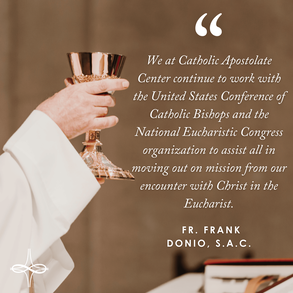 The National Eucharistic Revival in the United States moved into its second, or parish, year on the Solemnity of the Most Holy Body and Blood of Christ. In July 2024, the Church in the United States will hold a National Eucharistic Congress. We at Catholic Apostolate Center continue to work with the United States Conference of Catholic Bishops and the National Eucharistic Congress organization to assist all in moving out on mission from our encounter with Christ in the Eucharist. On Monday, June 19, Pope Francis met with the organizers of the Congress and offered these and other important insights. His words are quoted here at length and should be reflected on often. “It is my hope, then, that the Eucharistic Congress will inspire Catholics throughout the country to discover anew the sense of wonder and awe at the Lord’s great gift of himself and to spend time with him in the celebration of the Holy Mass and in personal prayer and adoration before the Blessed Sacrament…. I likewise trust that the Congress will be an occasion for the faithful to commit themselves with ever greater zeal to being missionary disciples of the Lord Jesus in the world… This is the sense of a missionary spirit. You go to the celebration of Mass, receive communion, adore the Lord and then what do you do after? You go out and evangelize. Jesus asks this of us. The Eucharist, then, impels us to a strong and committed love of neighbor. For we cannot truly understand or live the meaning of the Eucharist if our hearts are closed to our brothers and sisters, especially those who are poor, suffering, weary or who may have gone astray in life” (Pope Francis, Greeting to the Organizing Committee of the National Eucharistic Congress in the United States of America). May the Charity of Christ urge us on! In God, the Infinite Love, Fr. Frank
The first time I went to a spiritual retreat was during my freshman year in high school. We all crowded into the basement of the church near our school and held forced conversation with classmates we barely knew. What I thought was going to be a dreadful day ended up being a wonderful experience and helped me to grow not only in my social life, thanks to my newfound forced friends, but also helped me to grow in my spirituality. Since then, I have attended numerous retreats throughout my life, but some of my most memorable ones are those which were in a new space.
Later in my high school career, I joined a Life Teen group which went on off-site retreats twice a year, around Thanksgiving and Easter. These retreats held about sixty high school students from our group, and we would gather at local retreat houses for a weekend retreat. It was here that I really began to learn the importance of these off-site retreats and enjoy these new moments in new places. There was something so special about praying together, eating meals together, and spending quality time with the same group of people that really made me appreciate these experiences. I remember dreading the bus ride back to the church, because that meant that our time together was coming to a close. Personally, I found that I was much more keen to speak up and converse in deep conversation, and feel vulnerable in these retreat settings. In a way, it felt as if being in a new space felt like a new start. Similarly, my first weekend of college, I went on Freshman Retreat. I remember all the retreat leaders coming to the dorms and my parents encouraging me to sign up. I was terrified! I had no friends going on the trip, I was away from my roommate for the first time, and I had no idea what to expect. The weekend ended up being fantastic! We went kayaking, I made new friends, shared a cabin with classmates I’d never met before, and we ended the weekend with a beautiful eucharistic adoration and Mass. What I thought was going to be the most awkward and unfamiliar experience, ended up being filled with joy, laughter, and only falling into a lake once (that was the real miracle of the retreat!). Here at the Pallottine Seminary at Green Hill, we offer a full events facility for day events and can accommodate groups (smaller than thirty-five adults) for retreats, board meetings, or other similar group meeting needs. Additionally, there is a chapel for Mass, prayer, and adoration, a dining room for group meals, and several outdoor locations for break out groups or just to walk around our manicured fourteen acre landscaping. Just walking around Green Hill is such a relaxing experience; it is so quiet and serene, and such an enjoyable place to visit. Green Hill is even fully equipped with an audio / visual studio! Here, guests can record podcasts, film videos, and even host webinars from our studio space, which includes a teleprompter, lighting, microphones, and other items you may need. Our dedicated meeting space, the Queen of Apostles Room, was recently renovated to include a brand-new camera, microphone, and speaker system allowing for ease of use for events with virtual participants. Truly, most any amenity you may need for your group, you can find here. It is our hope that Green Hill can help to facilitate all your needs and enhance any retreat or group meeting experience. Retreats have the ability to be an experience that can be both connective and solitary. Through retreats, I found my spiritual life growing not just through my own words and thoughts, but through those of whom I was journeying with. We hope that Green Hill can be the backdrop for your next group meeting space and facilitate all the meaningful conversations to come for you and your ministry. To learn more about Green Hill, click here: https://www.catholicapostolatecenter.org/green-hill.html
This year, the Solemnity of the Most Sacred Heart of Jesus will be celebrated on June 16 and is one of my favorite days in the Church calendar. As I have become more and more involved in the new evangelization, I have come to realize that the Sacred Heart of Jesus is a crucial part of evangelization and relationship with Him. Trying to effectively convey the love that God has for His children is impossible without bringing them first to the Sacred Heart, where the depth and breadth of His love is felt and seen. The Sacred Heart is an image or phrase that many of us may be familiar with, but what does it actually mean? The image of the Sacred Heart was given to Saint Margaret Mary Alacoque in the late 16th century during a vision of Jesus that she experienced. Jesus desired not for Alacoque to keep this image to herself, but to share it with all people so that they could understand how deep His love was for them, and so that they had a way to return this love. When we look at the image of Jesus’ Sacred Heart, we see the entirety of His love for us. Through the flames we can see how He burns out of love for us. The thorns show us the depths of eternal suffering He is willing to endure for us, and His blood spilling out perpetually reminding us that the freely given gift of His love never can and never will be taken away. We cannot bring others to encounter Jesus Christ without His Sacred Heart. We need to carry it within ourselves so that when we meet others they meet Him first, encountering His radical love as it flows into us and overflows into those around us. We also need to carry His heart for the people we encounter, asking Him to show us the way He loves the people around us so that we can love them in that same way. When we encounter the people around us with the love of the Sacred Heart, we help them to realize that there is a person who infinitely sees, knows, and loves them, and desires more than anything else to be in relationship with them, and His name is Jesus Christ. Contained with the Sacred Heart of Jesus is the love He has for each of us, and the love we have for Him. When looking at His heart, Jesus invites each of us to find home within His heart and allow His heart to be at home within ours. The Sacred Heart is the image of Christ’s love for us, and the way we are called to respond to it. Looking at the radical, never ending love He has for us, the only response we have is radical, complete love given back to Him. We are called to receive the flame of love He gives us through the Holy Spirit and burn out of love for Him. We tend to His wounds in our love and unification of our sacrifice and suffering to His. We open ourselves up to Him and allow the Divine Mercy flowing from His pierced heart to wash over us. The Sacred Heart is not merely a symbol of love and salvation, but a call to relationship with Him.
As a therapist, I see many people who want to “forgive and forget.” Healing is not about forgetting, it’s about remembering. When we forgive someone, we are choosing to remember with a healed mind rather than a traumatized mind. Two people can remember the same situation differently. The Sacraments are instituted by God for us, the human beings He created in His image. As a Christ-centered therapist, I am passionate about integrating psychology with theology. Jesus is fully human, so He models what a healthy psychology looks like. In perfect union with the Triune God, He remembers the Father’s love for Him in every moment. He remembers the prophets that came before Him. He remembers the faith His parents taught Him. He remembers. While just an anecdote, the Disney movie The Lion King has similar themes to the psychology of Jesus. In the movie, Mufasa, Simba’s father, dies while rescuing Simba from a stampede, and Simba had assumed the blame. If he had not gone down into the valley that day, his father wouldn’t have had to save him. The story he told himself was that if he did not need saving, his dad would still be alive. This narrative led him away from home to not only escape these harrowing beliefs but numb the experience all together. Later in the movie, Simba encounters the spirit of his late father, Mufasa, at a critical point in his journey, Mufasa says, “You have forgotten who you are, so you have forgotten me. You are more than who you have become. Remember who you are. You are my son and the one true king.” Mufasa dying for Simba was not about it being Simba’s fault but about Mufasa’s fatherly love. It was this remembrance of the truth of who he was that gave him the courage to move forward, and to return to Pride Rock. Sometimes, it is easy for us to feel like Simba in our everyday lives. We can feel disconnected from God, and take on the blame for things that are not our fault. We each have our own burdens, but we are called, as Christians, to bring these burdens to Jesus and to share them with Him. We are loved beyond our wildest imagination by the God who created us. When we forget that truth, we can feel stuck, lost, or even traumatized. In a similar way, there is a psychological concept that has gained popularity: The Body Keeps Score by Bessel van der Kolk. Bonnie Mikelson, Director of EMDR and Beyond, sums up Van der Kolk’s book like this: "Most human suffering relates to love and loss so the therapist's job is to help people acknowledge, experience, and bear the reality of life, with all its pleasures and heartbreak." (p. 26). He goes on to say that we can't get better until we 'know what we know and feel what we feel," recognizing the tremendous courage and strength it takes to remember. When the brain shuts off this awareness to survive terrifying and overwhelming emotions, the person's capacity to feel fully alive is also deadened. A key to trauma treatment is helping clients to 'reactivate' a sense of self, 'the core of which is our physical body.' (p. 89)” While traumatic memories are disorganized and fragmented, positive memories have a beginning, middle, and end. This points to the One who was, who is, and who is to come. The One who lived, died, and rose. The One who “came that we may have life and have it more abundantly.” (John 10:10) In the first reading on the Solemnity of Corpus Christi, we read in Deuteronomy: “Remember how for forty years now the Lord, your God, has directed all of your journeying in the desert… do not forget the Lord, your God.” Throughout Jesus’ ministry he quoted Scripture and taught in parables. It was through telling stories, that he activated the memories of those listening. In some of his last words to his disciples at the Last Supper, he said, “Do this in remembrance of Me!” Van der Kolk teaches on how important action is in the healing process. When we’re traumatized, we feel powerless, trapped, or frozen. When we do something in remembrance, we remember. We bring the experience to life again. This is often felt at funerals when telling stories about the deceased loved one makes us feel as though they’re in the room with us. When we get stuck in a sequence of choices that didn’t work, we can pause and recall the most recent time it did work and adapt accordingly. When we lose something, we may ask, “where was the last place I saw it?” Jesus wants us to find Him in our past, our present, and our future. Sunday Mass is not an obligation because the Church likes to be bossy, it’s an obligation because Jesus wants to be a formative part of our daily lives. Venerable Fulton Sheen says, “The greatest love story of all time can be found in a small white Host.” We go to Mass regularly to have a rhythm of remembering:
As we receive the Body and Blood of Christ this weekend, let us pray for a deepened awareness, active engagement, and renewed faith. May we find our story in the Christian Story and the Christian Story in our story. Jesus shared everything with us. Let’s share everything with Him. You are truly a beloved son or daughter of the King! Remember who you are!
|
Details
Archives
July 2024
Categories
All
|
About |
Media |
© COPYRIGHT 2024 | ALL RIGHTS RESERVED

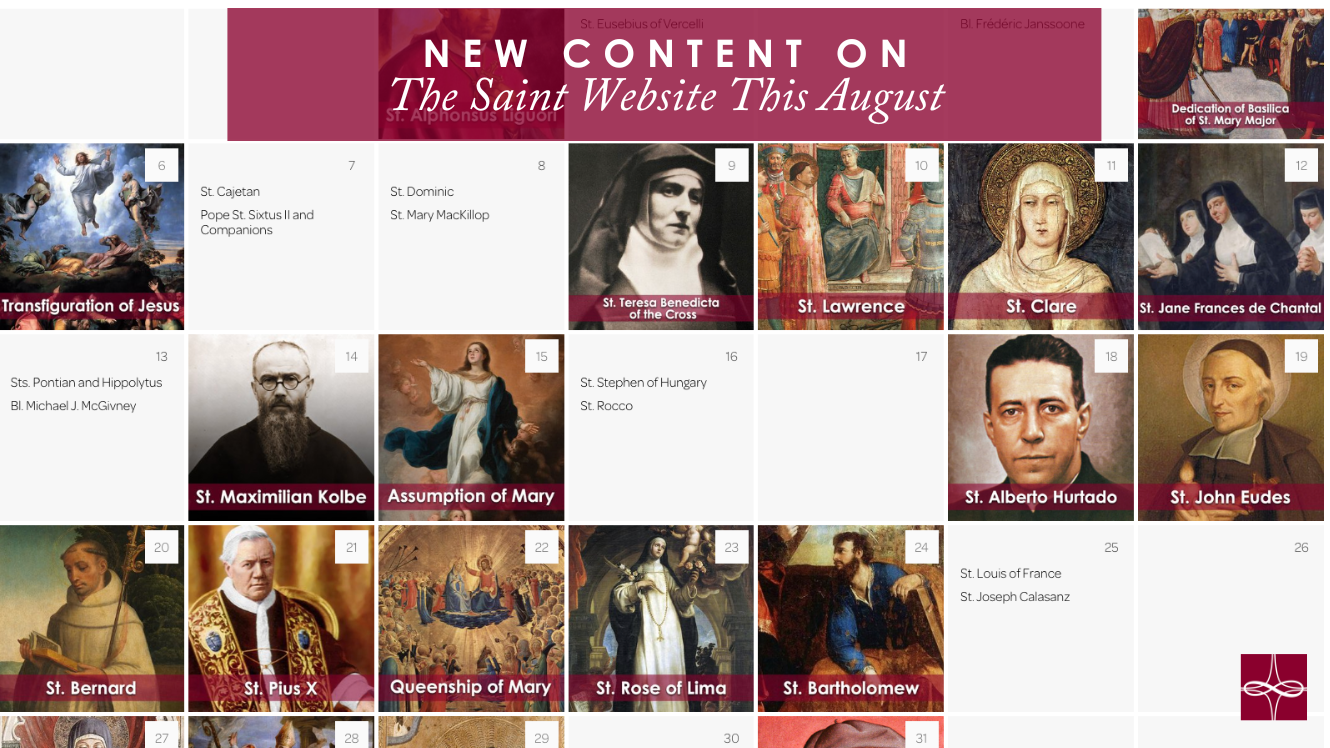


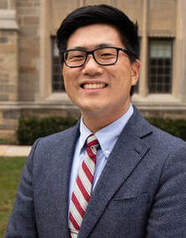
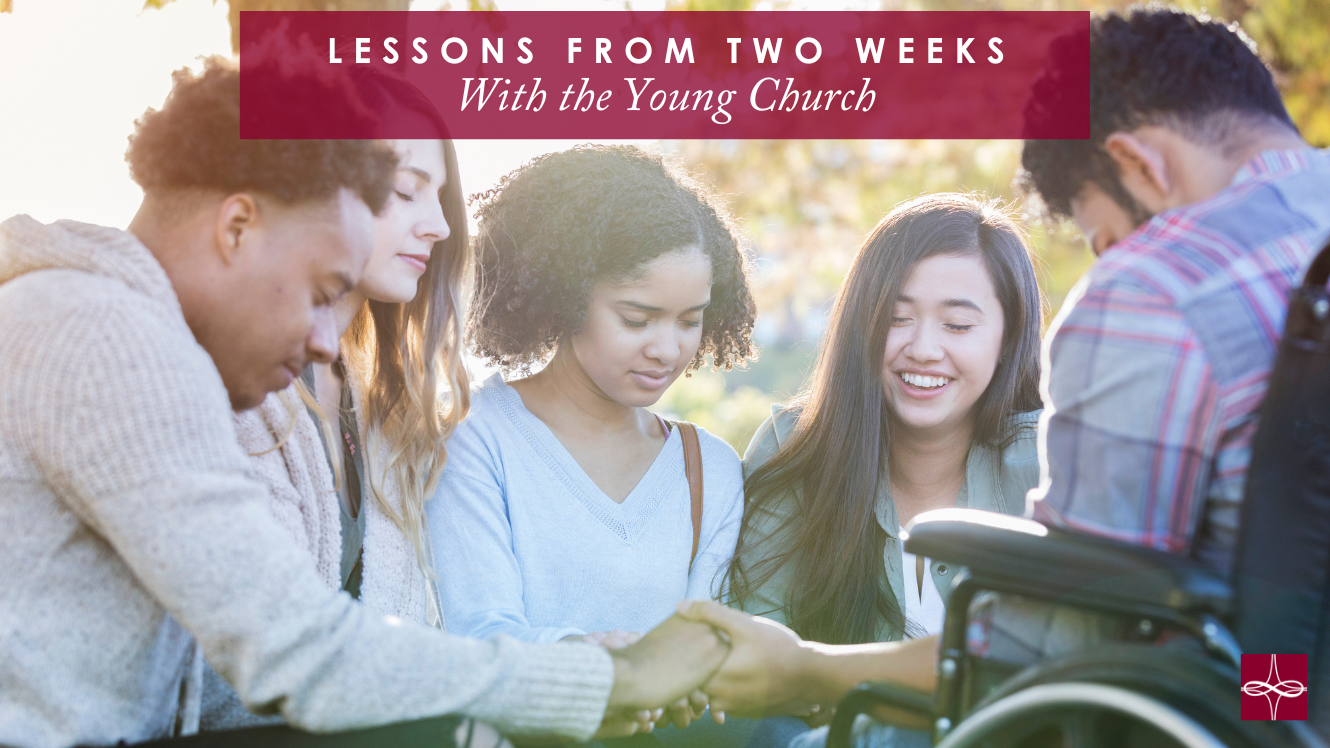
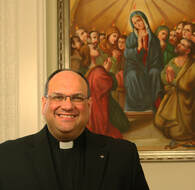
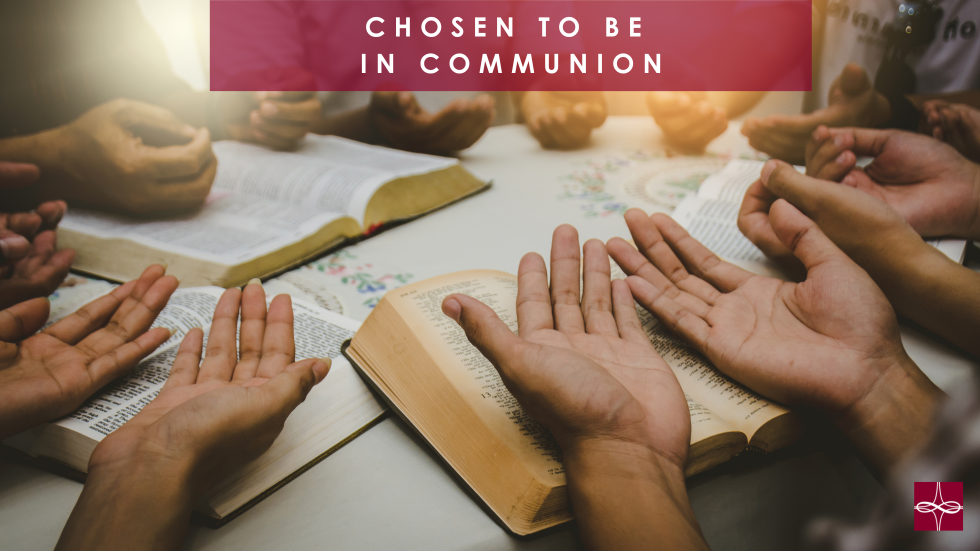
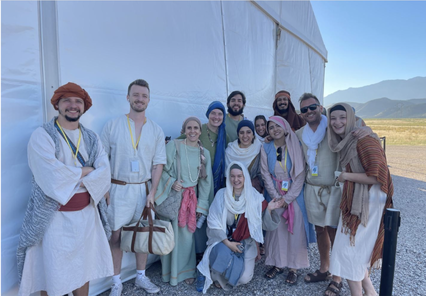

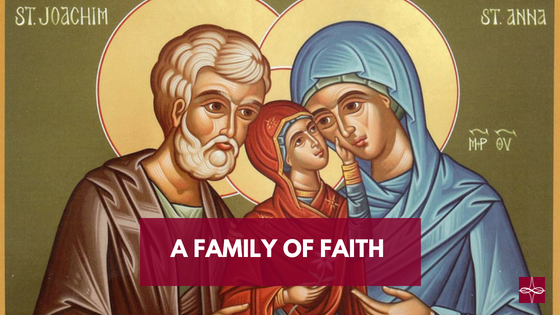


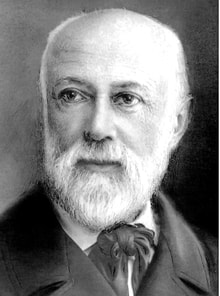
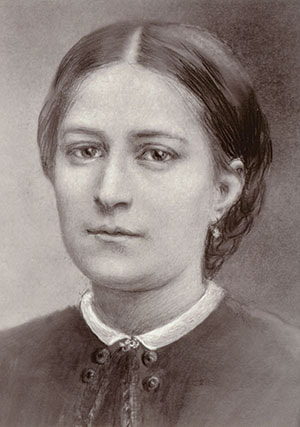
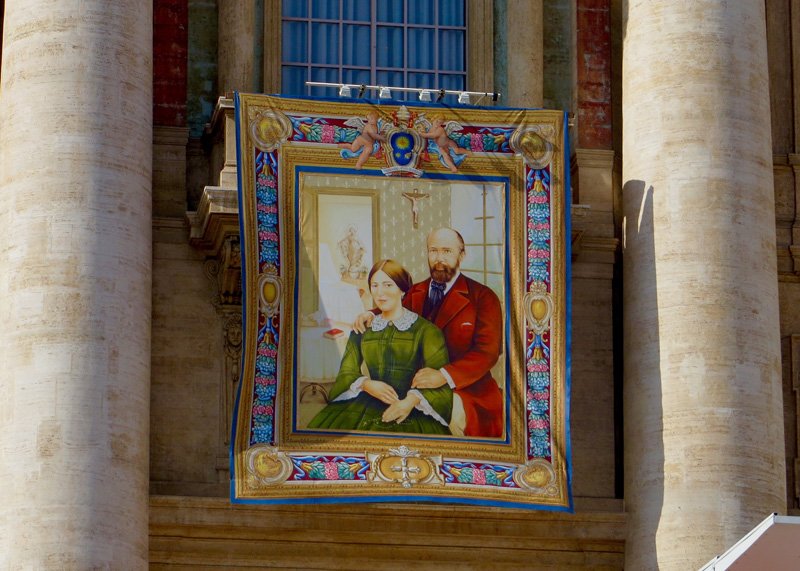

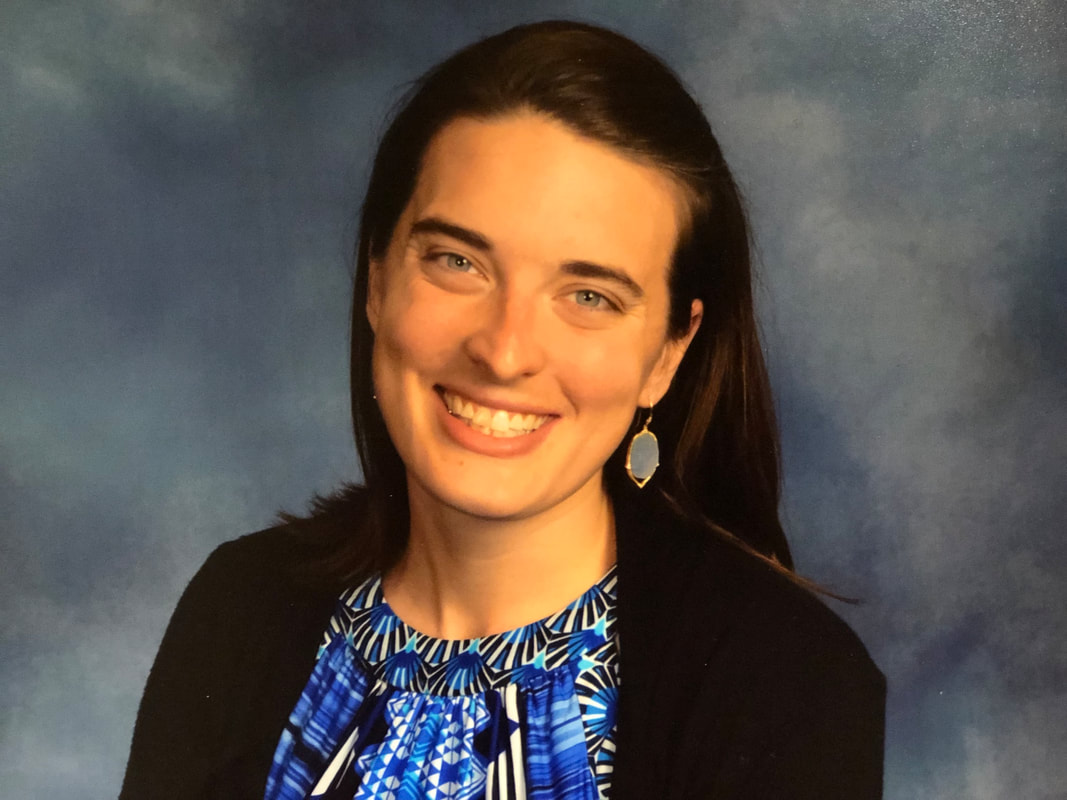
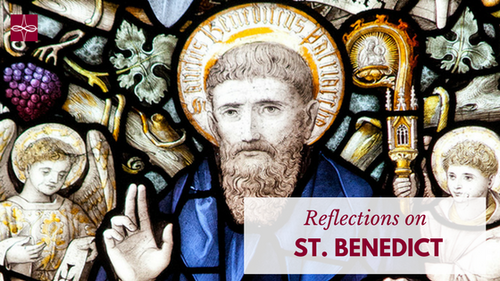
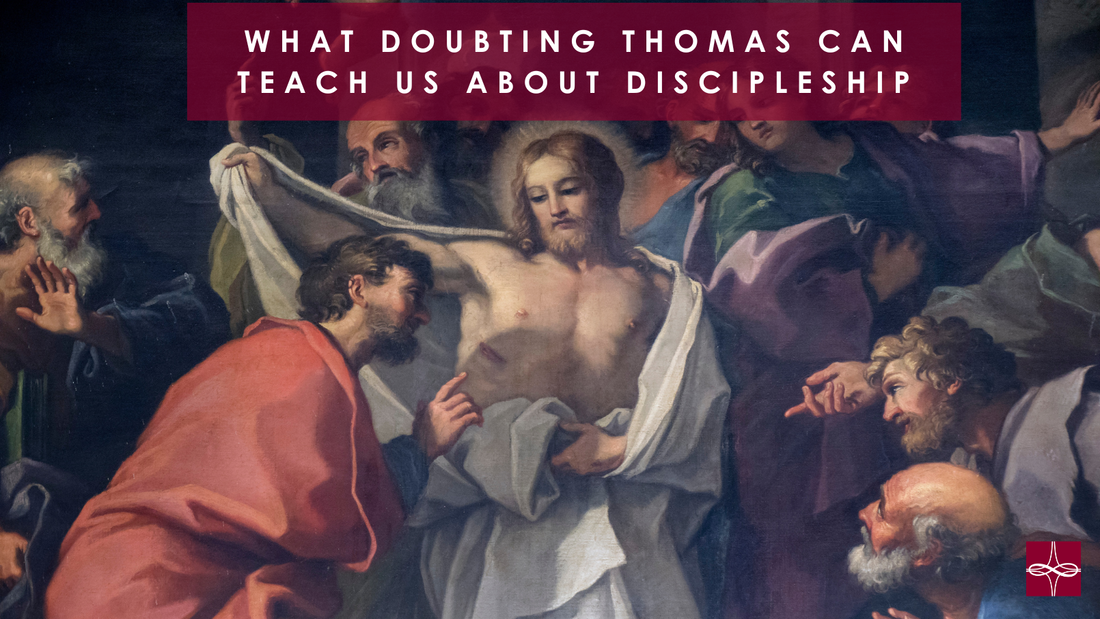

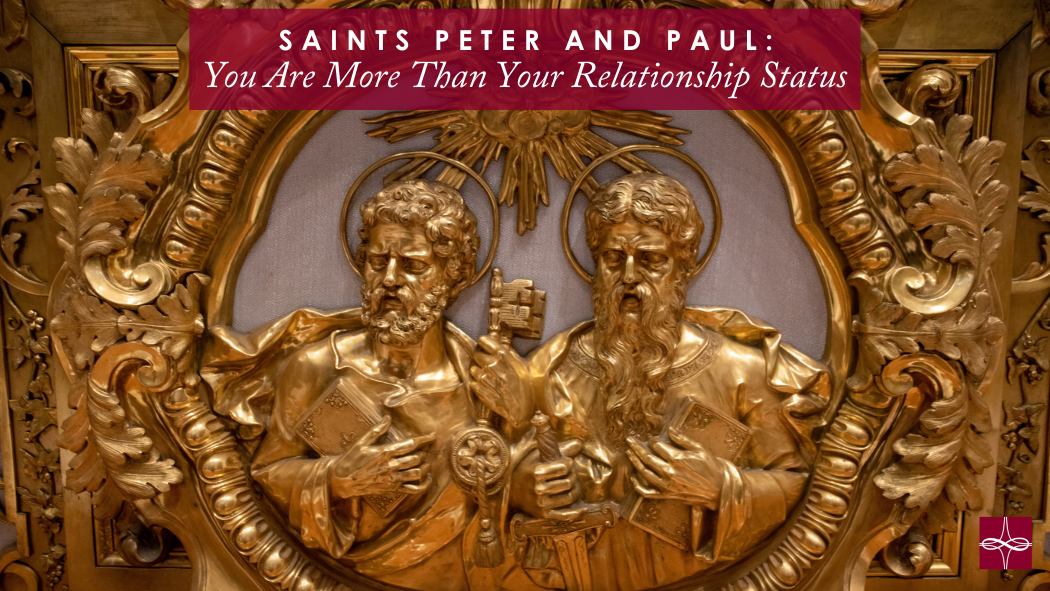
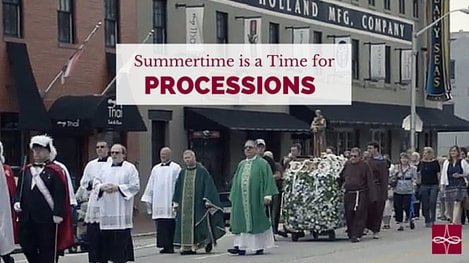
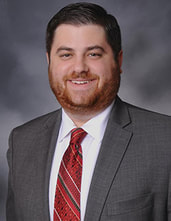
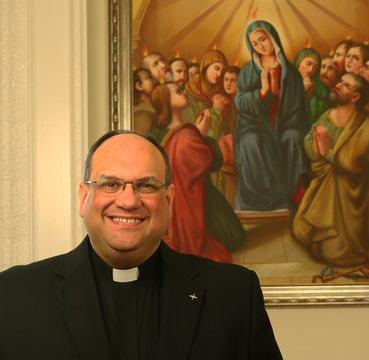


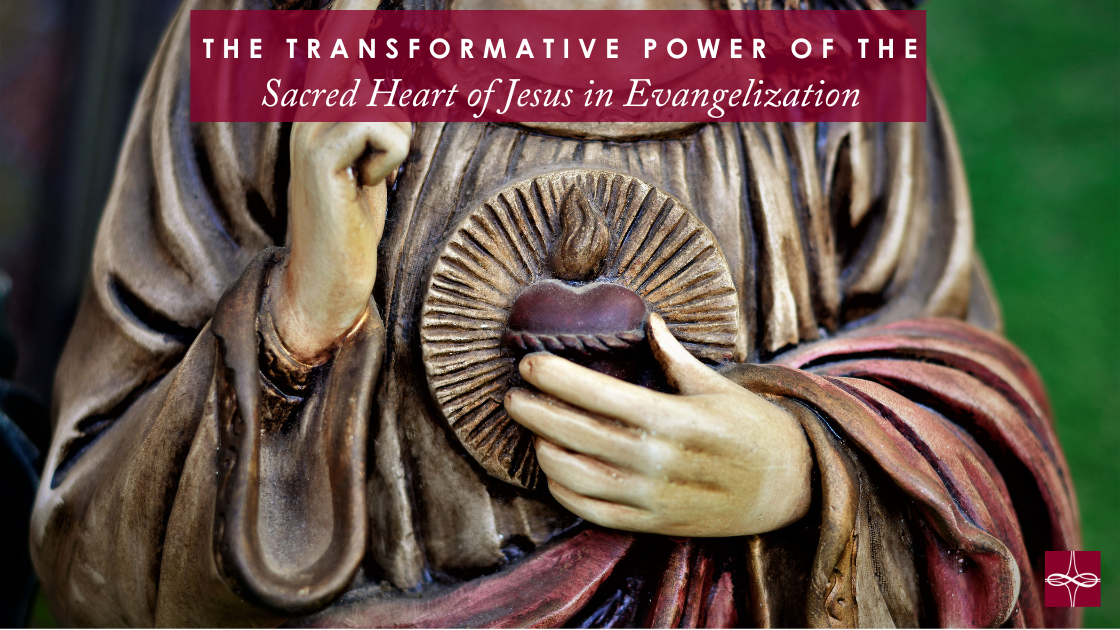

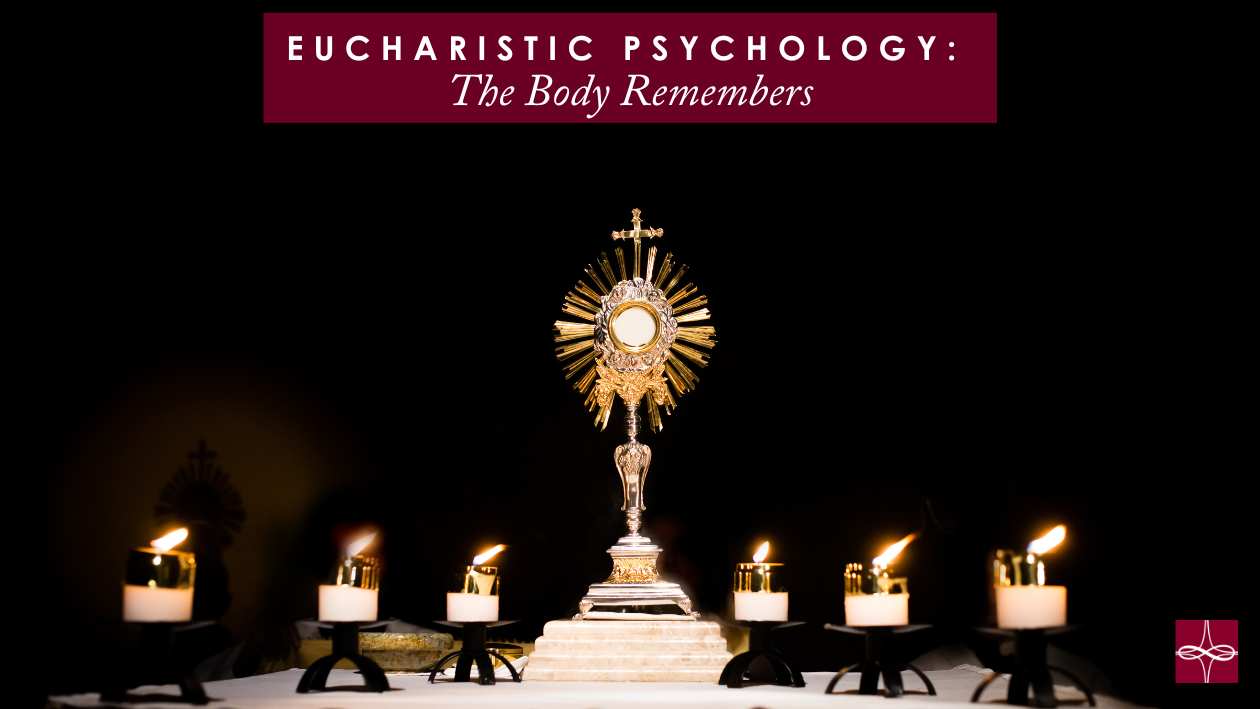
 RSS Feed
RSS Feed